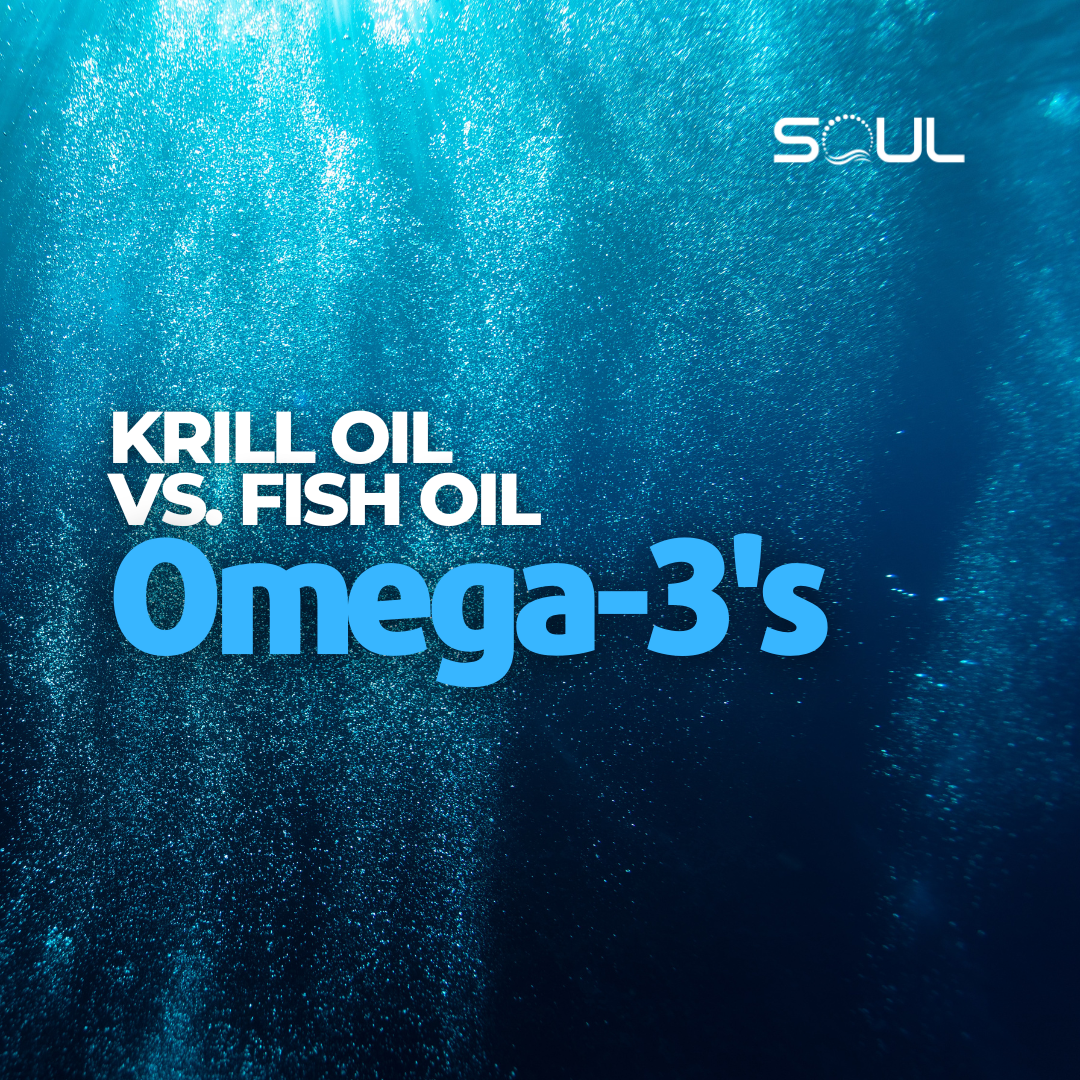
Krill Oil vs. Fish Oil: Which Omega-3 Supplement Should You Choose?
In the world of health supplements, Omega-3 fatty acids are the heavyweight champions. They’ve been heralded for their capacity to soothe inflammation, fortify cardiovascular health, and even sharpen cognitive function. But like all champions, they come with contenders: Krill Oil and Fish Oil. Both are formidable in their own right, yet their differences are worth exploring before you choose your Omega-3 weapon of choice. Let’s dive into what separates these two titans of the sea.
The Origins: From Tiny Crustaceans to Coldwater Fish
Krill oil is extracted from the diminutive yet mighty krill—tiny crustaceans that dwell in the icy waters of the Antarctic Ocean. Think of krill as the planktonic workforce of the ocean, harvesting nutrients efficiently from the environment. On the other hand, fish oil is sourced from the fatty bellies of cold-water fish like salmon, mackerel, and sardines, which graze in the same frigid waters.
While their habitats overlap, their extraction and nutritional makeup vary greatly. Krill oil provides its omega-3s in a phospholipid form, which brings a twist to the bioavailability game. Mechanistically, phospholipids mimic the very structure of our cell membranes, potentially allowing the Omega-3s to be absorbed more effectively. Fish oil, meanwhile, offers its EPA and DHA in the triglyceride form, which is potent but may require more steps for our bodies to break down and utilize.
The Battle of Bioavailability
A well-cited study published in the European Journal of Nutrition provided krill oil the upper hand, claiming that it was more efficient at raising blood levels of EPA and DHA than fish oil. The study noted that krill oil’s phospholipid-bound omega-3s seemed to “sneak” through the digestive system more readily, bypassing breakdown processes that triglyceride-bound omega-3s face. Now, here’s where it gets interesting: the study was funded by the krill oil industry, raising questions about potential biases. Still, the mechanism behind krill oil’s higher absorption efficiency is compelling, albeit not yet conclusively proven.
A Boost from Nature’s Antioxidant: Astaxanthin
One of the trump cards krill oil holds is its natural content of astaxanthin. This potent antioxidant, which lends krill oil its rich, red hue, is a carotenoid with unique anti-inflammatory and antioxidant properties. Fish oil, on the other hand, typically needs to be fortified with antioxidants like vitamin E to prevent oxidation.
Astaxanthin’s role goes beyond mere aesthetics. Theoretically, its inclusion in krill oil could synergize with omega-3s to combat oxidative stress and inflammation. This isn't just a marketing pitch—it's a mechanistic conjecture supported by research suggesting astaxanthin’s potential in reducing markers of inflammation and improving lipid profiles.
Sustainability and Contaminant Concerns
From an environmental perspective, krill oil stands out. Krill are lower on the food chain and reproduce rapidly, making them a more sustainable resource compared to fish. Furthermore, due to their shorter life spans, krill are less likely to accumulate heavy metals like mercury, giving them an edge in the purity stakes.
This is a stark contrast to fish oil, where sourcing from larger, long-lived fish can raise concerns about contaminants. However, quality fish oil producers employ stringent purification processes, ensuring a clean product. This trade-off between sustainability and production complexities is something eco-conscious consumers may wish to consider.
Unique Health Benefits
While both krill oil and fish oil can bolster heart health, reduce inflammation, and sharpen mental acuity, krill oil brings a few unique perks to the table. Choline, an essential nutrient found in krill oil, plays a key role in brain health, memory, and muscle function. Studies in animals suggest that krill oil supplementation can improve memory and learning, hinting at its potential cognitive benefits for humans.
In women, krill oil has also shown promise in reducing the symptoms of premenstrual syndrome (PMS). While fish oil is no slouch in the anti-inflammatory department, these unique advantages underscore krill oil’s holistic benefits.
Price and Preference
Cost-wise, krill oil is often the pricier option, largely due to its complex harvesting and extraction processes. But in the grand scheme, the cost differential might not be a decisive factor for everyone. The choice ultimately boils down to individual preference—whether you value higher EPA and DHA content or prefer a supplement that offers unique benefits like enhanced bioavailability and antioxidant support.
The Bottom Line
When deciding between krill oil and fish oil, it’s not a question of which is “better” but rather which suits your needs and values. Both offer robust omega-3 support, paving the way for improved heart health, cognitive function, and reduced inflammation. Fish oil is the tried-and-true heavyweight, delivering higher levels of EPA and DHA per dose. Krill oil, the agile underdog, touts superior bioavailability, added choline, and a powerhouse antioxidant in astaxanthin.
Whether you choose krill oil or fish oil, rest easy knowing that you’re harnessing the benefits of one of nature’s most powerful nutrients. The real winner in this contest? Your health. Choose wisely, and let Omega-3s do the heavy lifting.
These statements have not been evaluated by the Food and Drug Administration. This product is not intended to diagnose, treat, cure or prevent any disease. This article is for informational purposes only and is not a substitute for professional medical advice. Always consult your healthcare provider regarding any health concerns or before starting new supplements.
